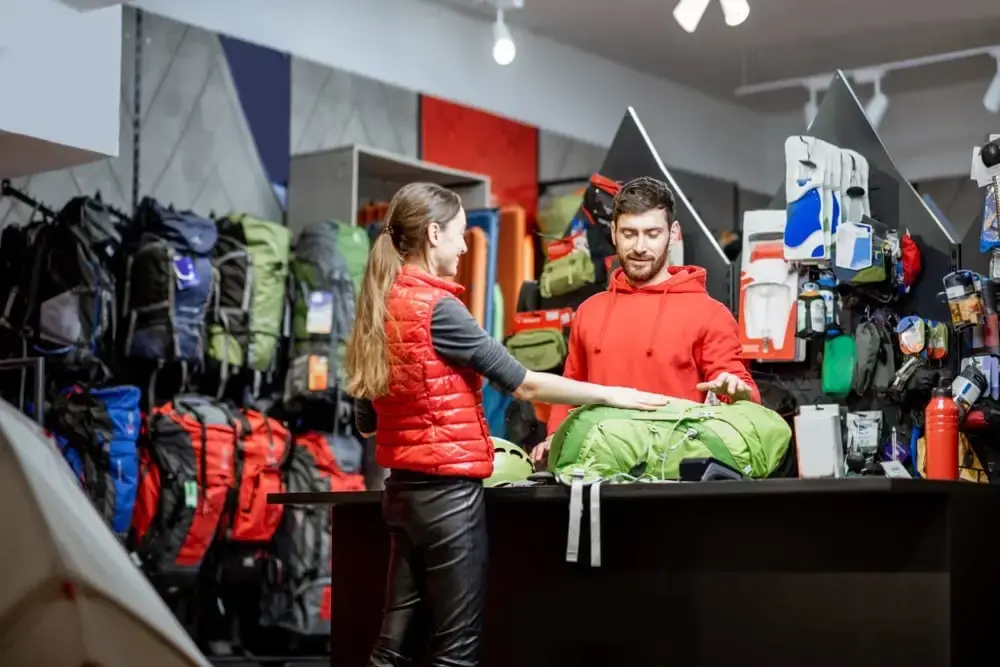
Outdoor retailers help customers gear up for every season’s adventures, from snowy slopes to sunny trails. But as winter jackets give way to camping gear, managing that seasonal inventory can get tricky. Limited storage, shifting demand, and quick transitions add to the challenge.
Are you looking for a way to address these issues? Explore inventory tools and strategies to help you keep popular items available, avoid overcrowding, and manage seasonal shifts.
1. Plan Ahead With Seasonal Sales Insights
Tracking seasonal sales can help you plan inventory for your outdoor shop. When you know exactly when items like ski boots or tents sell the most, it’s easier to stock before the peak season and avoid excess inventory during slow periods.
An all-in-one point of sale (POS) system simplifies this process with built-in sales tracking and reporting, showing you top sellers for each season at a glance. With this data, you can make well-timed purchases, keep stock levels in check, and stay ready for peak sales periods year-round.
2. Leverage Data for Strategic Stock Choices
Use a cloud-based POS management system to track sales data and plan stock ordering. To make data-driven stocking decisions, look at sell-through rates, inventory turnover, and seasonal trends.
For example, your store’s sell-through rate for products like hiking boots, winter jackets, or camping gear reveals which items move quickly and which are slow-moving over a specific period. Your POS system can automatically calculate these rates, helping you focus on items that keep sales active and reduce those that tie up valuable space.
3. Keep Cash Flow Steady With Year-Round Essentials
Maintain a steady cash flow by stocking essential items that sell throughout the year alongside seasonal products. While items like ski gear and summer water sports equipment drive peak sales, everyday essentials help fill revenue gaps during slower months.
Use your POS system’s real-time reporting to identify essentials, like hiking socks, base layers, and camping supplies that customers need in all seasons. These items support steady sales and help customers find reliable gear at all times of the year. Stocking staple outdoor items can also make it easier to manage inventory since they stay the same month to month.
4. Switch to Flexible Reordering for Efficiency
Do you need help to stock seasonal inventory without overwhelming your storage space?
A flexible inventory management strategy can make it easier to keep up with demand. Rather than following a rigid schedule, automated POS software tracks real-time sales and triggers reorders only when product selection dips.
An integrated system can automatically reorder items like insulated bottles or multi-season tents when stock runs low. Automating reorders means you keep popular items available without filling up storage space or straining your budget, making inventory more manageable and responsive to customer needs.
5. Clear Space With Strategic End-of-Season Sales
Excess stock at season’s end ties up capital and clutters your shelves.
Clear space and recover costs with targeted clearance sales on out-of-season items. Use your POS system to send marketing emails or texts with special offers like a buy one get one (BOGO) deal or a winter flash sale to move seasonal products quickly.
Discounts and bundled deals on seasonal items offer multiple benefits for your store. These special sales keep revenue flowing with timely purchases, clear out shelf space, reduce storage costs, and boost customer satisfaction with attractive pricing, encouraging loyalty in the future.
6. Strengthen Supplier Partnerships for Seasonal Inventory Success
Focus on strong supplier partnerships to keep season-specific inventory flexible and meet customer demand without overstocking.
What does this mean in practice? It can look like negotiating terms like adjustable lead times, minimum order adjustments, and return options to handle shifting trends.
For example, if warmer winter weather lowers snow gear demand, a strong partnership might allow returns on snow boots or reduced orders on ski apparel. Or, if demand for camping gear spikes unexpectedly in spring, a quick lead time adjustment can guarantee order fulfillment runs smoothly.
These flexible options help you avoid excess inventory, clear valuable shelf space, and keep cash flow free for other essentials.
Get Ahead of Seasonal Trends and Boost Sales
Looking for a way to stay on top of seasonal inventory management this year?
Invest in Rain POS, an all-in-one outdoor retail POS system. From real-time tracking to up-to-date sales reports, Rain POS simplifies inventory planning, helping you reach more customers and increase sales.
The platform offers the insights and tools to make data-driven business decisions, restock quickly with automatic reordering, and stay ahead of changing demands. With Rain POS, you’ll not only keep up with seasonal inventory but also keep customers coming back.
Book a demo today to discover how Rain POS can help your store thrive year-round.
 by
by 
